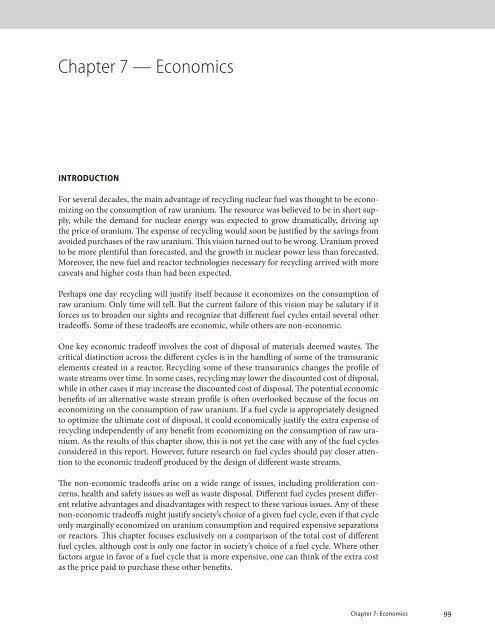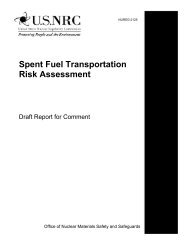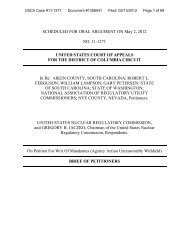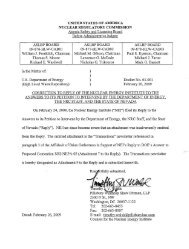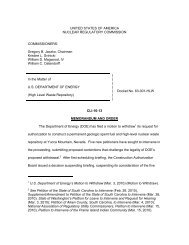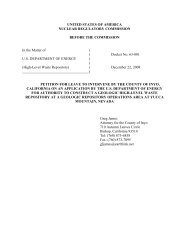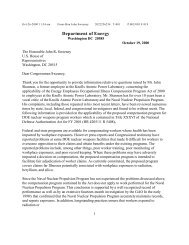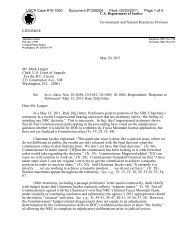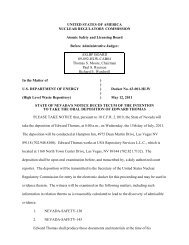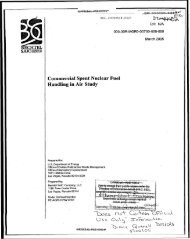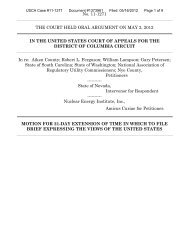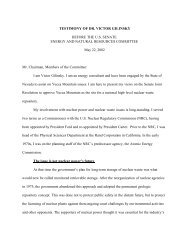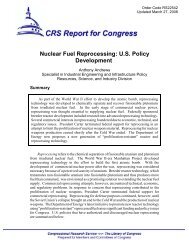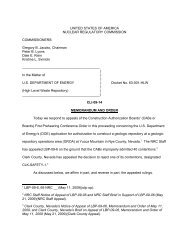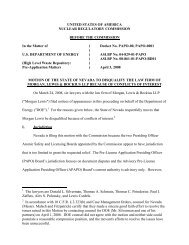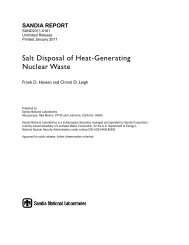The FuTure oF nuclear Fuel cycle - MIT Energy Initiative
The FuTure oF nuclear Fuel cycle - MIT Energy Initiative
The FuTure oF nuclear Fuel cycle - MIT Energy Initiative
You also want an ePaper? Increase the reach of your titles
YUMPU automatically turns print PDFs into web optimized ePapers that Google loves.
Chapter 7 — Economics<br />
introduCtion<br />
For several decades, the main advantage of recycling <strong>nuclear</strong> fuel was thought to be economizing<br />
on the consumption of raw uranium. <strong>The</strong> resource was believed to be in short supply,<br />
while the demand for <strong>nuclear</strong> energy was expected to grow dramatically, driving up<br />
the price of uranium. <strong>The</strong> expense of recycling would soon be justified by the savings from<br />
avoided purchases of the raw uranium. This vision turned out to be wrong. Uranium proved<br />
to be more plentiful than forecasted, and the growth in <strong>nuclear</strong> power less than forecasted.<br />
Moreover, the new fuel and reactor technologies necessary for recycling arrived with more<br />
caveats and higher costs than had been expected.<br />
Perhaps one day recycling will justify itself because it economizes on the consumption of<br />
raw uranium. Only time will tell. But the current failure of this vision may be salutary if it<br />
forces us to broaden our sights and recognize that different fuel <strong>cycle</strong>s entail several other<br />
tradeoffs. Some of these tradeoffs are economic, while others are non-economic.<br />
One key economic tradeoff involves the cost of disposal of materials deemed wastes. <strong>The</strong><br />
critical distinction across the different <strong>cycle</strong>s is in the handling of some of the transuranic<br />
elements created in a reactor. Recycling some of these transuranics changes the profile of<br />
waste streams over time. In some cases, recycling may lower the discounted cost of disposal,<br />
while in other cases it may increase the discounted cost of disposal. <strong>The</strong> potential economic<br />
benefits of an alternative waste stream profile is often overlooked because of the focus on<br />
economizing on the consumption of raw uranium. If a fuel <strong>cycle</strong> is appropriately designed<br />
to optimize the ultimate cost of disposal, it could economically justify the extra expense of<br />
recycling independently of any benefit from economizing on the consumption of raw uranium.<br />
As the results of this chapter show, this is not yet the case with any of the fuel <strong>cycle</strong>s<br />
considered in this report. However, future research on fuel <strong>cycle</strong>s should pay closer attention<br />
to the economic tradeoff produced by the design of different waste streams.<br />
<strong>The</strong> non-economic tradeoffs arise on a wide range of issues, including proliferation concerns,<br />
health and safety issues as well as waste disposal. Different fuel <strong>cycle</strong>s present different<br />
relative advantages and disadvantages with respect to these various issues. Any of these<br />
non-economic tradeoffs might justify society’s choice of a given fuel <strong>cycle</strong>, even if that <strong>cycle</strong><br />
only marginally economized on uranium consumption and required expensive separations<br />
or reactors. This chapter focuses exclusively on a comparison of the total cost of different<br />
fuel <strong>cycle</strong>s, although cost is only one factor in society’s choice of a fuel <strong>cycle</strong>. Where other<br />
factors argue in favor of a fuel <strong>cycle</strong> that is more expensive, one can think of the extra cost<br />
as the price paid to purchase these other benefits.<br />
chapter 7: economics 99


